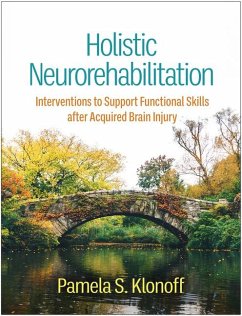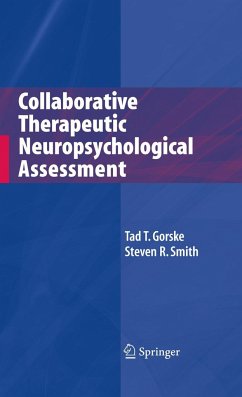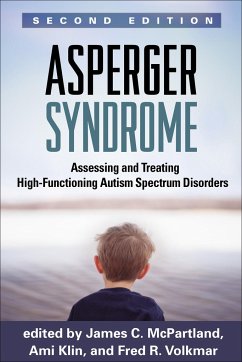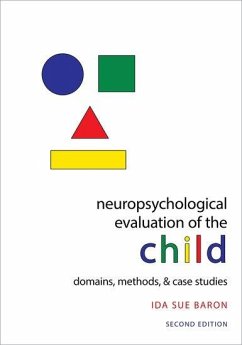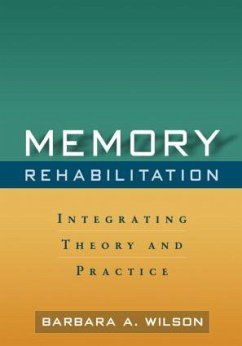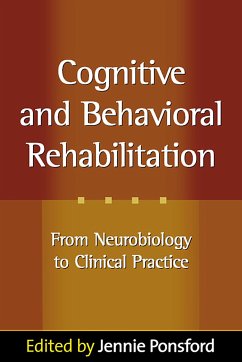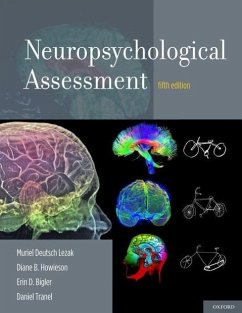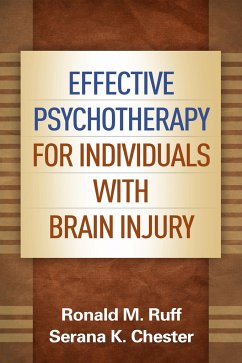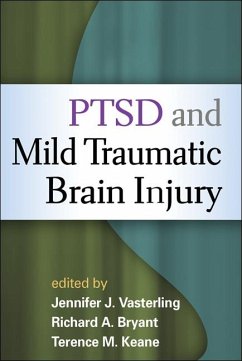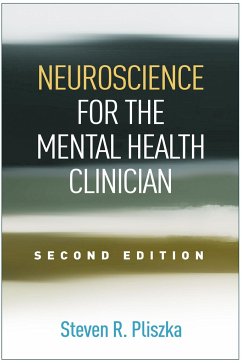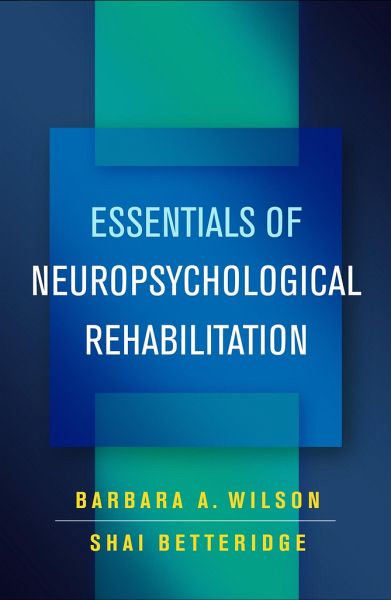
Essentials of Neuropsychological Rehabilitation
Versandkostenfrei!
Versandfertig in über 4 Wochen

PAYBACK Punkte
29 °P sammeln!




For people with disabilities caused by nonprogressive brain injury, challenges in everyday living can be multifaceted and overwhelming. This book presents key principles of holistic neuropsychological rehabilitation, helping practitioners stay on track through complex terrain.
Barbara A. Wilson, OBE, PhD, a clinical neuropsychologist, is founder of the Oliver Zangwill Centre for Neuropsychological Rehabilitation in Ely, Cambridgeshire, United Kingdom. She has worked in brain injury rehabilitation since the 1970s. Dr. Wilson has published 26 books, over 300 journal articles and book chapters, and 8 neuropsychological tests, and is editor of the journal Neuropsychological Rehabilitation. She has won many awards for her work, including five lifetime achievement awards, the Ramón y Cajal Award from the International Neuropsychiatric Association, and the M. B. Shapiro Award from the British Neuropsychological Society. She is past president of the British Neuropsychological Society and the International Neuropsychological Society, and is currently president of the Encephalitis Society and on the management committee of the World Federation for NeuroRehabilitation. Dr. Wilson is a Fellow of the British Psychological Society, the Academy of Medical Sciences, and the Academy of Social Sciences. She is an honorary professor at the University of Hong Kong, the University of Sydney, and the University of East Anglia, and holds honorary degrees from the University of East Anglia and the University of Córdoba in Argentina. Shai Betteridge, PsychD, CPsychol, PGDip, is Head of the Clinical Neuropsychology and Clinical Health Psychology Department at St. George's Hospital in London, United Kingdom. She is a chartered clinical psychologist with the British Psychological Society, a member of its Division of Neuropsychology's Specialist Register of Clinical Neuropsychologists, and a registered practitioner psychologist with the U.K. Health and Care Professions Council. Dr. Betteridge has worked in various research and applied areas related to neuropsychology and neuropsychological rehabilitation. She has a keen interest in national government agendas that have an impact on the field of neuropsychological rehabilitation and participates in several working groups committed to quality improvement and excellence. She is a specialist inspector for neuropsychology services for the Care Quality Commission, the independent regulator of health and social care in England; provides core teaching modules in neuropsychology for clinical psychology training courses; and is an oral examiner for the U.K. Qualification in Clinical Neuropsychology.
Produktdetails
- Verlag: Guilford Publications
- Seitenzahl: 236
- Erscheinungstermin: 2. September 2019
- Englisch
- Abmessung: 229mm x 150mm x 20mm
- Gewicht: 522g
- ISBN-13: 9781462540747
- ISBN-10: 1462540740
- Artikelnr.: 55298784
Herstellerkennzeichnung
Libri GmbH
Europaallee 1
36244 Bad Hersfeld
gpsr@libri.de
Für dieses Produkt wurde noch keine Bewertung abgegeben. Wir würden uns sehr freuen, wenn du die erste Bewertung schreibst!
Eine Bewertung schreiben
Eine Bewertung schreiben
Andere Kunden interessierten sich für


